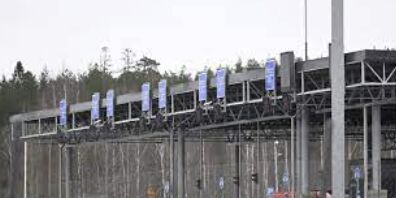Finland Implements Barriers at Russian Border Crossings to Stem Influx of Asylum Seekers
Finland is closing four Russian border crossings in an attempt to control the influx of asylum seekers. Approximately 100 asylum seekers have already entered Finland from Russia.
Finland will be implementing barriers at four Russian border crossings in an effort to control the influx of asylum seekers arriving via Russia, according to the Finnish Border Guard. The decision to close four of Finland's nine border crossings with Russia comes as a response to the sudden increase in the number of asylum seekers crossing the country's eastern frontier. The border crossings at Vaalimaa, Nuijamaa, Imatra, and Niirala, which are normally the busiest points of travel between the two countries, will be closed as of midnight on Saturday.
The Border Guard's head of international affairs, Matti Pitkaniitty, explained that the aim is to prevent entry using barrier devices, citing changes in Russia's border policy as the reason behind Finland's measures. Approximately 100 asylum seekers had entered Finland from Russia by midday on Friday. Starting from Saturday, asylum seekers will only be able to hand in their applications at two northern border crossings, Salla and Vartius, as stated by Pitkaniitty. This move comes after this week alone saw the arrival of around 300 asylum seekers, primarily from Iraq, Yemen, Somalia, and Syria.
The Finnish government has accused Russia of purposely directing people to the border, a charge that Moscow has denied. Finland, an EU member, sparked tensions with Moscow earlier this year when it joined the NATO military alliance, breaking away from decades of non-alignment following Russia's invasion of Ukraine. With a 1,340-km (833-mile) border shared with Russia, Finland also serves as the external border of the EU. Despite the accusations, Finland's president's claim that the rise in asylum seekers is Russian retaliation for Helsinki's defense cooperation with the US has been dismissed by the Kremlin. Nonetheless, the ombudsman for non-discrimination in Finland stated that Helsinki still has a duty, under international treaties and EU law, to allow asylum seekers to seek protection.




